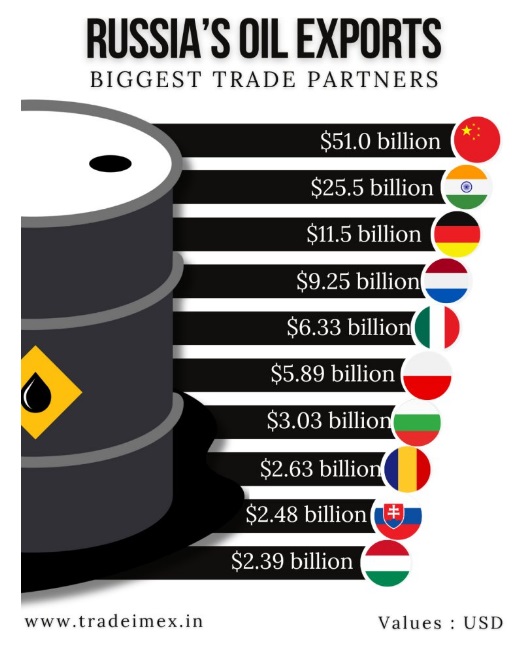 Russian oil exports in 2024
Russian oil exports in 2024
As peace talks between Ukraine and Russia stall, Western leaders are hoping that a fresh round of sanctions will push Moscow to reach a compromise with Kyiv. “We have to increase our pressure [on] Russia to come to peace negotiations,” said European Council President Antonio Costa, adding that Erope is coordinating with the United States to make sanctions “more effective.”
But a new report from the Government Accountability Office casts doubt on the effectiveness of this approach. The government watchdog created a model to determine the impact of sanctions and found that Western economic restrictions did little if any damage to Russia’s economy in 2023 or 2024. In fact, Russia’s GDP has grown at a higher rate than expected for the last two years, ‘The Responsible Statecraft’ stresses.
One reason for this resilience, according to GAO, was the quick response from Russia’s central bank, which raised interest rates and imposed capital controls as sanctions began to kick in. These measures, in addition to increased military spending and expanded trade with states that haven’t signed onto sanctions, have so far allowed Russia’s economy to thrive despite the West’s best efforts.
Of course, this doesn’t mean that sanctions are inherently ineffective as a tool for putting pressure on Russia. The problem is that any serious effort to turn the screws on Moscow would also create major economic problems for European states themselves.
Take the case of Russian oil exports. Europe has significantly reduced its direct imports of Russian oil, but it has made up for much of this supply by importing oil from India — a state that buys most of its crude from Russia before refining it for export. In other words, Brussels continues to support Moscow’s economy, but with an Indian middleman to obscure the connection.
Europe plans to put an end to this practice in January, but it remains unclear how it will find enough oil to satisfy demand on the continent and prevent a spike in energy prices. In the meantime, Indian diesel exports to the European Union are jumping as European buyers seek to stockpile supplies before an import ban kicks in.
A similar challenge looms over efforts to limit Russian oil exports as a whole. Treasury Secretary Scott Bessent urged European states to levy tariffs on China and India for buying Russian oil, a move that Bessent hopes could bring about the “total collapse” of the Russian economy. But European leaders have refused to countenance such a move, which would risk sparking retaliation from crucial EU trading partners.
All of this evidence appears to have convinced Russia that time is on its side. With the current level of sanctions in place, experts say Russia’s economy could likely go another two years without facing a serious crisis.
However one looks at the problem, the timeline doesn’t look good for Ukraine.
read more in our Telegram-channel https://t.me/The_International_Affairs

 11:29 17.09.2025 •
11:29 17.09.2025 •






















